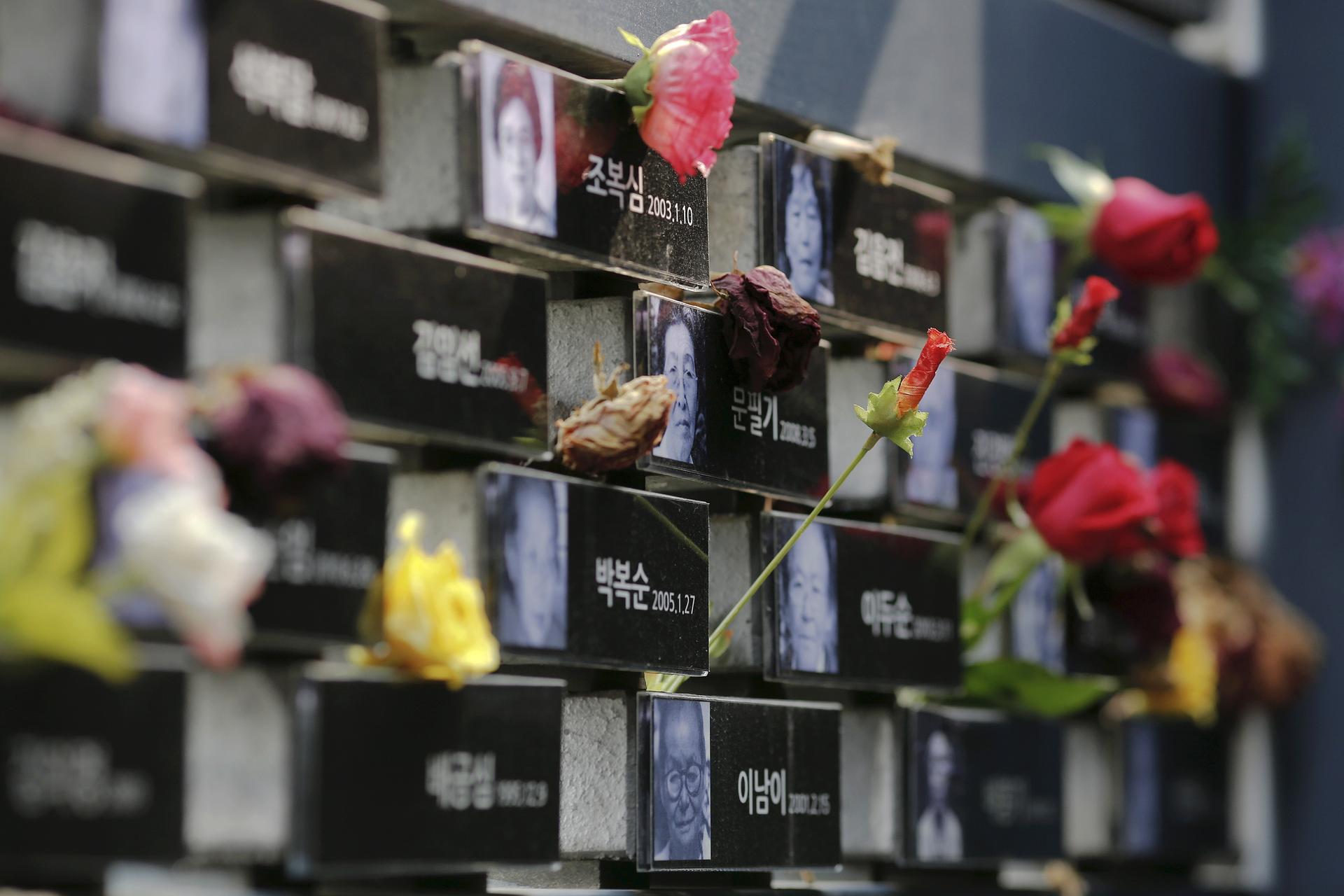Flowers are placed on a memorial wall commemorating the late former South and North Korean “comfort women” at the War and Women’s Human Rights Museum” in Seoul, South Korea, July 22, 2015. “Comfort womenâ€? is the Japanese euphemism for women who were forced into prostitution and sexually abused at Japanese military brothels before and during World War Two.
They’ve been called "comfort women" — they’ve also been called sex slaves.
Their average age now is 89.
On Monday, after decades of discussion, the governments of Japan and South Korea reached a landmark agreement on how to compensate women who say they were forced to work in Japan's brothels during World War II.
The foreign ministers of the two countries said after a meeting in Seoul that the "comfort women" issue would be "finally and irreversibly resolved.”
South Korean President Park Geun-hye and Japanese Prime Minister Shinzo Abe pledged to take the opportunity to boost bilateral ties following the agreement.
Not everyone was pleased with this agreement.
A group representing comfort women in the US expressed grave concerns. "The agreement does not contain the apology nor the reparation that the comfort women survivors have been asking for,'' the New York-based group said in a release.
“History has certainly gotten in the way of diplomatic ties between these two countries, despite them being very economically interwoven,” says Seoul-based reporter Jason Strother.
Japan made a formal apology to the women and promised about $8.3 million for a fund to help surviving victims. Only 46 survivors remain of the 238 women in South Korea who came forward.
“Once these women came back after the war was over in 1945, many were shunned from their families,” says Strother. “They were outcasts and seen as prostitutes. They had trouble marrying, starting their own families, many I’m sure suffered from some psychological trauma from the treatment they endured during those years.”
Japan and South Korea have been trying for decades to resolve the "comfort women" issue, but past negotiations have not delivered an agreement. Japan formally apologized in 1993 and set up a compensation fund — but that was rejected by some victims because it was privately funded.
“It was all kept quiet up until the 1990s after South Korea became a democracy. You had civic groups start to rally around these women and press the South Korean government to get some kind of compensation from Tokyo.”
And scholars continue to debate the number of women exploited and the nature of the exploitation. Activist groups in South Korea say there may have been as many as 200,000 Korean victims, even though only a small number came forward.
“There’s actually a professor in Seoul named Park Yu-ha who is facing a defamation suit because of this," says Strother. "She wrote that some of these women were, in fact, prostitutes, that some felt that it was their patriotic duty to serve the Japanese army in brothels, that often it was Korean middlemen who took these women to the Japanese military, bought them from their parents…she argued that the Japanese military played a small role in the actual recruitment.”
Our coverage reaches millions each week, but only a small fraction of listeners contribute to sustain our program. We still need 224 more people to donate $100 or $10/monthly to unlock our $67,000 match. Will you help us get there today?
